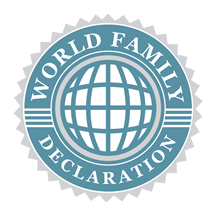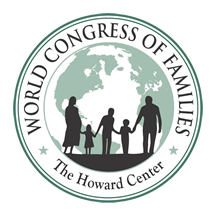World Family Declaration
We the people of many lands and cultures reaffirm the truth enshrined in the Universal Declaration of Human Rights,1 and echoed in international treaties2 and many of our national constitutions,3 that “The family is the natural and fundamental group unit of society and is entitled to protection by society and the State.” Hence the family exists prior to the state and possesses inherent dignity and rights which states are morally bound to respect and protect.
We declare that the family, a universal community based on the marital union of a man and a woman, is the bedrock of society, the strength of our nations, and the hope of humanity. As the ultimate foundation of every civilization known to history,4 the family is the proven bulwark of liberty and the key to development, prosperity, and peace.
The family is also the fountain and cradle of new life, the natural refuge for children, and the first and foremost school to teach the values necessary for the well-being of children and society. The family truly is our link to the past and bridge to the future.5
Children are our future, and we gratefully acknowledge the selfless service rendered by parents, grandparents, guardians, and other caregivers who provide opportunities, as prescribed in the Declaration of the Rights of the Child, for children “to develop physically, mentally, morally, spiritually and socially in a healthy and normal manner and in conditions of freedom and dignity.”6
Recognizing that, as stated in the Universal Declaration of Human Rights, “motherhood and childhood are entitled to special care and assistance,”7 and, as stated in the Declaration of the Rights of the Child, every child should, “wherever possible, grow up in the care and under the responsibility of his [or her] parents,”8 we declare that a functional, nurturing family founded on marriage between a man and a woman provides the surest safeguard of the special care and assistance to which children are entitled.
Gravely concerned by the escalating calamities afflicting children and society due to the rapid decline of marriage and family, we recall the sobering observation that “throughout history, nations have been able to survive a multiplicity of disasters— invasions, famines, earthquakes, epidemics, depressions— but they have never been able to survive the disintegration of the family.”9 We affirm the ancient wisdom that the world cannot be put in order without first putting in order the family.10
We call for a culture that honors and enables faithful, fulfilling, and resilient marriages; that recognizes and protects the uniquely valuable contributions of both mothers and fathers to the lives of their children; and that encourages the values and vision necessary for young people to look forward to and prepare for successful marriage and parenting.
We call upon officials and policymakers, internationally, nationally, and at all levels of government, to immediately establish policies and implement measures to preserve and strengthen marriage and family.
We urge citizens, leaders, and people of influence everywhere to place as their highest priority the protection and strengthening of the family as the irreplaceable foundation of civilization and our only hope for prosperity, peace, and progress.
View the World Family Declaration without footnotes
1. UNIVERSAL DECLARATION OF HUMAN RIGHTS, Article 16(3).
2. International treaty provisions echoing Article 16(3) of the Universal Declaration of Human Rights:
- INTERNATIONAL COVENANT ON CIVIL AND POLITICAL RIGHTS: “The family is the natural and fundamental group unit of society and is entitled to protection by society and the State.” Article 23(1).
- INTERNATIONAL COVENANT ON ECONOMIC, SOCIAL AND CULTURAL RIGHTS: “The widest possible protection and assistance should be accorded to the family, which is the natural and fundamental group unit of society, particularly for its establishment and while it is responsible for the care and education of dependent children.” Article 10(1).
3. National constitutional provisions echoing Article 16(3) of the Universal Declaration of Human Rights:
- AFGHANISTAN: "Family is the fundamental pillar of the society, and shall be protected by the state. The state shall adopt necessary measures to attain the physical and spiritual health of the family, especially of the child and mother." Chapter 2, Article 54.
- ALBANIA: "Marriage and family enjoy special protection of the state." Part 2, Chapter 4, Article 53.2.
- ALGERIA: "The family shall enjoy the protection of the State and of the society." Part 1, Chapter 4, Article 58.
- ANDORRA: "The public authorities shall promote a policy of protection of the family, which is the basic foundation of society." Title 2, Chapter 3, Article 13.2.
- ANGOLA: "The family is the basic nucleus of social organisation and shall be the object of special protection by the state." Title 2, Chapter 2, Section 1, Article 35.1.
- ANTIGUA AND BARBUDA: "Every person in Antigua and Barbuda is entitled to... protection for his family life." Chapter 2, Article 3.c.
- ARMENIA: "The family is the natural and fundamental group unit of society." Chapter 2, Article 35.
- AZERBAIJAN: "Family as a basic element of society is under special protection of the state.... Family and marriage are protected by state. Maternity, paternity and childhood are protected by the law." Section 1, Chapter 2, Article 17.1; Section 2, Chapter 3, Article 34.3.
- BAHRAIN: "The family is the basis of society, deriving its strength from religion, morality and love of the homeland. The law preserves its lawful entity, strengthens its bonds and values, under its aegis extends protection to mothers and children, tends the young and protects them from exploitation and safeguards them against moral, bodily and spiritual neglect." Chapter 2, Article 5.a.
- BELARUS: "Marriage, the family, motherhood, fatherhood, and childhood shall be under the protection of the State." Section 2, Article 32.
- BENIN: "The State shall protect the family and particularly the mother and child." Title 2, Article 26.
- BOLIVIA: "The State recognizes and protects the family as the fundamental nucleus of society, and guarantees the economic and social conditions necessary for its full development.... The marriage between a man and a woman is formed by legal bond." Section 6, Articles 62 and 63.1.
- BRAZIL: "The family, which is the foundation of society, shall enjoy special protection from the State.” Title 8, Chapter 7, Article 226.
- BULGARIA: "The family, motherhood, and childhood shall enjoy the protection of the State and society.... Matrimony shall be a voluntary union between a man and a woman. " Chapter 1, Article 14, and Chapter 2, Article 46(1).
- BURKINA FASO: "The family is the basic unit of society. The State has the duty to protect it. Marriage is founded on the free consent of the man and of the woman." Title 1, Chapter 4, Article 23.
- BURUNDI: "The family is the natural base cell of society.... Family and marriage are placed under the particular protection of the State. Title 2, Article 30.
- CAMEROON: "The Nation shall protect and promote the family which is the natural foundation of human society." Preamble.
- CAPE VERDE: "The family is the fundamental element and the basis of all society. The family must be protected by society and by the State to create conditions for the accomplishment of its social function and for the personal fulfillment of its members... The State and social institutions must create conditions to assure the unity and stability of the family." Title 5, Article 86.1-2, 4.
- CENTRAL AFRICAN REPUBLIC: "Marriage and the family constitute the natural and moral basis of the human community. They are placed under the protection of the State." Title 1, Article 6.
- CHAD: "The family is the natural and moral basis of society. The state and the decentralised territorial collectivities have the duty to see to the well-being of the family." Title 2, Chapter 1, Article 37.
- CHILE: "The family is the fundamental nucleus of society. It is the duty of the State to... provide protection for the people and the family, to promote the strengthening of the latter." Chapter 1, Article 1.
- CHINA: "Marriage, the family, and mother and child are protected by the state." Chapter 2, Article 49.
- COLOMBIA: "The state... protects the family as the basic institution of society.... The family is the basic nucleus of society. It is formed on the basis of natural or legal ties, through the free decision of a man and woman to contract matrimony or through the responsible resolve to comply with it. The State and society guarantee the integral protection of the family.... The family’s honor, dignity, and intimacy are inviolable. " Title 1, Article 5; Title 2, Chapter 2, Article 42.
- CONGO: "The State has the obligation to assist the family in its mission as guardian of the morality and of the values compatible with the republican order.... Marriage and family are under the protection of the law." Title 2, Articles 31-32.
- COSTA RICA: "The family, as [a] natural element and foundation of society, has the right to the special protection of the State... Marriage is the essential basis of the family." Title 5, Articles 51 and 52.
- CÔTE D’IVOIRE (IVORY COAST) : "The family constitutes the basic unit of the society. The State assures its protection." Title 1, Chapter 1, Article 5.
- CROATIA: "The family shall enjoy special protection of the state." Title 3, Chapter 3, Article 61.
- CUBA: "The State protects the family, motherhood and matrimony. The State recognizes in the family the fundamental cell of the society, and attributes to it essential responsibilities and functions in the education and training of the new generations. Marriage is the voluntary established union between a man and a woman." Chapter 4, Articles 35 and 36.
- CZECH REPUBLIC: "Parenthood and the family are under the protection of the law." Charter of Fundamental Rights and Basic Freedoms, Chapter 4, Article 32(1).
- DEMOCRATIC REPUBLIC OF THE CONGO: "All individuals have the right to marry a person of their choice of the opposite sex and to create a family. The family, the basic unit of the human community, is organized in a way which ensures its unity, stability and protection. It is placed under the protection of the public authorities." Title 2, Chapter 2, Article 40.
- DOMINICAN REPUBLIC: "The family is the foundation of the society and it is the basic space for the integral development of persons.... The State guarantees the protection of the family.... The State shall promote and protect the family organization based on the institution of marriage between a man and a woman." Title 2, Chapter 1, Section 2, Article 55(2)-(3).
- ECUADOR: "The State shall protect it as the fundamental core of society and shall guarantee conditions that integrally favor the achievement of its goals.... Marriage is the union of man and woman." Title 2, Chapter 6, Article 67.
- EQUATORIAL GUINEA: "The state shall ensure the protection of the family as the foundation of the society and shall secure the moral, cultural and economic conditions favorable to the achievement of objectives." Part 1, Article 21.
- EL SALVADOR: "The family is the fundamental basis of society and shall have the protection of the State... The legal foundation of the family is marriage." Title 2, Chapter 2, Section 1, Article 32.
- ERITREA: "The State shall encourage values of community solidarity and love and respect of the family.... The family is the natural and fundamental unit of society and is entitled to the protection and special care of the State and society." Chapter 2, Article 9.2; Chapter 3, Article 22.1.
- ESTONIA: "The family, being fundamental to the preservation and growth of the nation and as the basis of society shall be protected by the state." Chapter 2, Article 27.
- ETHIOPIA: "The family is the natural and fundamental unit of society and is entitled to protection by society and the State." Chapter 3, Part 2, Article 34.3.
- GABON: "The family is the basic natural unit of society; marriage is the legitimate support of it. They shall be placed under the particular protection of the State." Article 1(14).
- GERMANY: "Marriage and the family shall enjoy the special protection of the state." Title 1, Article 6(1).
- GHANA: "The protection and advancement of the family as the unit of society are safeguarded in promotion of the interest of children." Chapter 5, 28(1)(e).
- GREECE: "The family, being the cornerstone of the preservation and the advancement of the Nation, as well as marriage, motherhood and childhood, shall be under the protection of the State." Part 2, Article 21.1.
- GUATEMALA: "Recognizing the family as the primary and fundamental genesis of the spiritual and moral values of the society and the State.... The State guarantees the social, economic, and juridical protection of the family." Preamble; Title 2, Chapter 2, Section 1, Article 47.
- HAITI: "The State protects the family, which is the foundation of society." Title 10, Article 259.
- HONDURAS: "The family, marriage, motherhood and childhood are under the protection of the State." Part 3, Chapter 3, Article 111.
- HUNGARY: "We hold that the family and the nation constitute the principal framework of our coexistence.... Hungary shall protect the institution of marriage as the union of a man and a woman established by voluntary decision, and the family as the basis of the nation’s survival." National Avowal, Foundation, Article L(1).
- IRAN: "The family unit is the basis of society, and the true focus for the growth and elevation of mankind. Harmony of beliefs and aspirations in setting up the family is the true foundation of the movement towards the development and growth of mankind. This has been a fundamental principle. Providing the opportunities for these objectives to be reached is one of the duties of the Islamic Government.... Since the family is the fundamental unit of Islamic society, all laws, regulations, and pertinent programs must tend to facilitate the formation of a family, and to safeguard its sanctity and the stability of family relations." Preamble; Chapter 1, Article 10.
- IRELAND: "The State recognises the Family as the natural primary and fundamental unit group of Society, and as a moral institution possessing inalienable and imprescriptible rights, antecedent and superior to all positive law. The State, therefore, guarantees to protect the Family in its constitution and authority, as the necessary basis of social order and as indispensable to the welfare of the Nation and the State." Article 41.1.1°- 2°.
- ITALY: "The Republic recognizes the rights of the family as a natural society founded on marriage." Title 2, Article 29.
- KAZAKHSTAN: "Marriage and family, motherhood, fatherhood and childhood shall be under the protection of the state." Section 2, Article 27.1.
- KENYA: "The family is the natural and fundamental unit of society and the necessary basis of social order, and shall enjoy the recognition and protection of the State." Chapter 4, Part 2, Article 45(1).
- KOSOVO: "Family enjoys special protection by the state in a manner provided by law." Chapter 2, Article 37.3.
- KUWAIT: "The family is the corner stone of Society.... Law shall preserve the integrity of the family, strengthen its ties, and protect under its support motherhood and childhood." Part 2, Article 9.
- KYRGYZ REPUBLIC: "Family shall be the foundation of the society. Family, paternity, maternity and childhood shall be the subject of care of the entire society and preferential protection by law." Section 1, Chapter 2, Article 36.1.
- LATVIA: "The State shall protect and support marriage – a union between a man and a woman, the family, the rights of parents and rights of the child." Chapter 8, Article 110.
- LIBYA: "Family shall be the basis of society and shall be protected by the State. The State shall protect and encourage marriage." Chapter 1, Article 5.
- LITHUANIA: "The family shall be the basis of society and the State. Family, motherhood, fatherhood and childhood shall be under the protection and care of the State. Marriage shall be concluded upon the free mutual consent of man and woman." Chapter 3, Article 38.
- LUXEMBOURG: "The State guarantees the natural rights of the human person and of the family." Chapter 2, Article 11(1).
- MACEDONIA: "The Republic provides particular care and protection for the family." Section 2, Part 2, Article 40.
- MADAGASCAR: "The family, natural and fundamental element of the society, is protected by the State.... The State assures the protection of the family for its free development as well as that of the mother and the child." Title 2, Subtitle 2, Articles 20-21.
- MALAWI: "The family is the natural and fundamental group unit of society and is entitled to protection by society and the State." Chapter 4, Article 22(1).
- MAURITANIA: "The family [is] the basic unit of the Islamic society.... The State and the society protect the family." Preamble; Title 1, Article 16.
- MOLDOVA: "The family is the natural and fundamental constituent of society, and as such has the right to be protected by the State and by society. The family is founded on the freely consented marriage of husband and wife." Title 2, Chapter 2, Article 48(1)-(2).
- MONGOLIA: "The State shall protect the interests of the family, motherhood and the child." Chapter 2, Article 16.11.
- MONTENEGRO: "Family shall enjoy special protection." Part 2, Section 4, Article 72.
- MOZAMBIQUE: "The family is the fundamental unit and the basis of society." Title 4, Chapter 3, Article 119.1.
- NAMIBIA: "The family is the natural and fundamental group unit of society and is entitled to protection by society and the State." Chapter 3, Article 14(3).
- NICARAGUA: "The family is the fundamental nucleus of society and has the right to protection by society and the State." Title 4, Chapter 4, Article 70.
- NIGER: "Marriage and family constitute the natural and moral foundation of the human community. Both are placed under the protection of the State." Title 2, Article 21.
- NORTH KOREA: "Marriages and the family shall be protected by the State. The State pays great attention to consolidating the family, the basic unit of social life." Chapter 5, Article 78.
- OMAN: "The family is the basis of society, and the Law regulates the means of protecting it, safeguarding its legal structure, reinforcing its ties and values, providing care for its members, and creating suitable conditions for the development of their aptitudes and capabilities." Chapter 2, Article 12.
- PAKISTAN: "The State shall protect the marriage, the family, the mother and the child." Part 2, Chapter 2.35.
- PANAMA: "The State protects marriage, motherhood and the family." Title 3, Chapter 2, Article 56.
- PAPUA NEW GUINEA: "We... call for... the family unit to be recognized as the fundamental basis of our society, and for every step to be taken to promote the moral, cultural, economic and social standing of the Melanesian family." Preamble 1(5).
- PARAGUAY: "The family is the foundation of society. Its complete protection will be promoted and guaranteed. It includes the stable union of a man and a woman, the children, and the community formed with anyone of their progenitors and their descendants." Part 1, Title 2, Chapter 4, Article 49.
- PERU: "The community and the State... protect the family and promote marriage, which are recognized as natural and fundamental institutions of society." Section 1, Chapter 1, Article 4.
- PHILIPPINES: "The State recognizes the sanctity of family life and shall protect and strengthen the family as a basic autonomous social institution.... The State recognizes the Filipino family as the foundation of the nation. Accordingly, it shall strengthen its solidarity and actively promote its total development. Marriage, as an inviolable social institution, is the foundation of the family and shall be protected by the State. " Article 2, Section 12; Article 15, Sections 1-2.
- POLAND: "Marriage, being a union of a man and a woman, as well as the family, motherhood and parenthood, shall be placed under the protection and care of the Republic of Poland." Chapter 1, Article 18.
- PORTUGAL: "As a fundamental element in society, the family shall possess the right to protection by society and the state and to the effective implementation of all the conditions needed to enable family members to achieve personal fulfilment." Title 3, Chapter 2, Article 67.1.
- QATAR: "The family is the nucleus of society.... The law regulates the means capable of its protection, maintaining its structure, strengthening its ties, and safeguarding motherhood, childhood, and old age within its framework." Part 2, Article 21.
- RUSSIA: "Maternity and childhood, and the family shall be protected by the State." Section 1, Chapter 2, Article 38.
- RWANDA: "The family, which is the natural foundation of Rwandan society, is protected by the State. Both parents have the right and duty to bring up their children. The State shall put in place appropriate legislation and institutions for the protection of the family and the mother and child in particular in order to ensure that the family flourishes." Title 2, Chapter 1, Article 27.
- SAINT LUCIA: "Every person in Saint Lucia is entitled to... protection for his family life." Chapter 1, Article 1(c).
- SAO TOME AND PRINCIPE: "As the fundamental element of the society, the family has the right to the protection of the society and of the state." Part 2, Title 3, Article 50.1.
- SAUDI ARABIA (Basic Law of Governance): "The family is the nucleus of Saudi Society.... The state shall aspire to promote family bonds." Chapter 3, Articles 9-10.
- SENEGAL: "Marriage and the family constitute the natural and moral base of the human community. They are placed under the protection of the State." Title 2, Article 17.
- SERBIA: "Families, mothers, single parents and any child in the Republic of Serbia shall enjoy special protection." Part 2.2, Article 66.
- SEYCHELLES: "The State recognises that the family is the natural and fundamental element of society and undertakes to promote the legal, economic and social protection of the family." Chapter 3, Part 1, Article 32(1).
- SLOVAK REPUBLIC: "Matrimony, parenthood, and family shall be protected by the law." Title 2, Section 5, Article 41(1).
- SLOVENIA: "The state shall protect the family, motherhood, fatherhood, children and young people and shall create the necessary conditions for such protection." Part 2, Article 53.
- SOMALIA: "Marriage is the basis of the family, which is the foundation of society. Its protection is a legal duty of the state." Chapter 2, Title 2, Article 28(1).
- SOUTH SUDAN: "Family is the natural and fundamental unit of society and shall be protected by law. All levels of government shall promote the welfare of the family and enact the necessary laws for its protection." Part 2, Article 39(1)-(2).
- SPAIN: "The public authorities ensure social, economic and legal protection of the family." Part 1, Chapter 3, Article 39.1.
- SRI LANKA: "The State shall recognize and protect the family as the basic unit of society." Chapter 6, Article 27(12).
- SUDAN: "The family is the natural and fundamental unit of the society and is entitled to the protection of the law; the right of man and woman to marry and to found a family shall be recognized." Part 1, Chapter 2, Article 15(1).
- SURINAME: "The family is recognized and protected." Chapter 6, Section 9, Article 35.1.
- SWAZILAND: "The family is the natural and fundamental unit of society and is entitled to protection by the State.... Society and the State have the duty to preserve and sustain the harmonious development, cohesion and respect for the family and family values." Chapter 3, Article 27(3) and (5).
- SYRIA: "The family shall be the nucleus of society and the law shall maintain its existence and strengthen its ties; the state shall protect and encourage marriage." Chapter 1, Part 3, Article 20(1)-(2).
- TAJIKISTAN: "The state shall protect the family as the basis of society." Chapter 2, Article 33.
- TIMOR-LESTE: "The State protects the family as the society’s basic unit and condition for the harmonious development of the person." Part 2, Title 2, Section 39.1.
- TOGO: "The state shall have the obligation to assure protection of marriage and the family." Title 2, Subtitle 1, Article 31.
- TUNISIA: "The family is the basic structure of society and the State shall protect it." Chapter 1, Article 7.
- TURKEY: "Family is the foundation of the Turkish society... The State shall take the necessary measures and establish the necessary organization to protect peace and welfare of the family, especially mother and children" Part 2, Chapter 3.1, Article 41.
- UGANDA: "The family is the natural and basic unit of society and is entitled to protection by society and the State." Preamble 19.
- UKRAINE: "Marriage is based on the free consent of a woman and a man.... The family, childhood, motherhood and fatherhood are under the protection of the State." Title 2, Article 51.
- UNITED ARAB EMIRATES: "The family shall be the basis of society. Its support shall be religion, ethics and patriotism. The law shall guarantee its existence and shall safeguard it and protect it from corruption." Chapter 2, Article 15.
- URUGUAY: "The family is the basis of our society. The State shall safeguard its moral and material stability so that children may be properly reared within that society." Section 2, Chapter 2, Article 40.
- UZBEKISTAN: "The family is the primary unit of society and shall have the right to protection of the society and state." Part 3, Chapter 14, Article 63.
- VENEZUELA: "The State shall protect families as a natural association in society, and as the fundamental space for the overall development of persons." Title 3, Chapter 5, Article 75.
- VIETNAM: "The family is the nucleus of society. The State protects marriage and the family." Chapter 5, Article 64.
- YEMEN: "The family is the basis of society... The law shall maintain the integrity of the family and strengthen its ties." Part 1, Chapter 3, Article 26.
- ZIMBABWE: "The State and all institutions and agencies of government at every level must protect and foster the institution of the family." Chapter 2, Article 25.
4. "The family has been the ultimate foundation of every civilization known to history." Will Durant, The Mansions of Philosophy: A Survey of Human Life and Destiny (New York: Simon & Schuster, 1929), 395. William James Durant (1885–1981) was a prolific historian and author. With his wife, Ariel, he wrote an eleven-volume history of the world entitled The Story of Civilization. They were awarded the Pulitzer Prize for General Non-Fiction and the US Presidential Medal of Freedom.
5. “In every conceivable manner, the family is link to our past, bridge to our future.” Alex Haley (1921-1992, author of Roots: The Saga of an American Family), quoted on http://www.alex-haley.com/alex_haley_quotes.htm.
9. Michael Novak, “The Family Out of Favor,” Harper’s Magazine 252:1511 (1 April 1976), 42. Michael Novak (b. 1933) is an author, philosopher, and diplomat, serving as U.S. Ambassador to the United Nations Commission on Human Rights in 1981 and 1982, and leading the U.S. delegation to the Conference on Security and Cooperation in Europe in 1986.
10. Confucius (551-479 BC; Chinese teacher, politician, and philosopher): “The illustrious ancients, when they wished to make clear and to propagate the highest virtues in the world, put their states in proper order. Before putting their states in proper order, they regulated their families. Before regulating their families, they cultivated their own selves.... When their selves were cultivated, their families became regulated. When their families became regulated, their states came to be put into proper order. When their states came to be put into proper order, then the whole world became peaceful and happy.” From “The Great Learning,” quoted in Will Durant, The Greatest Minds and Ideas of All Time (New York: Simon & Schuster, 2002), 12; and see Wing-Tsit Chan, A Source Book in Chinese Philosophy (Princeton: Princeton University Press, 1969), 86-87.
Leaders throughout history have proclaimed it, the Universal Declaration of Human Rights declares it, and constitutions across the world affirm it: The family is the natural and fundamental unit of society and must be protected.
Never has the family stood in more urgent need of protection as it now faces its moment of greatest peril, a crisis that is eroding society and jeopardizing civilization. The solution has been known since antiquity. To put the world in order, we must first put in order the family.
Please sign, encourage others to sign, and disseminate the World Family Declaration as widely as possible—and then do everything possible to strengthen and protect the family. What we now do, or fail to do, will shape our world for generations to come.
The World Family Declaration is an initiative of the World Congress of Families.
Endorsing organizations:
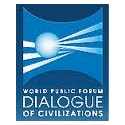
World Public Forum: Dialogue of Civilizations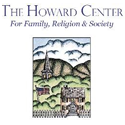
The Howard Center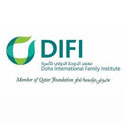
Doha International Family Institute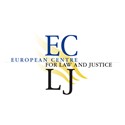
European Centre for Law and Justice
Concerned Women for America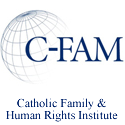
Catholic Family & Human Rights Institute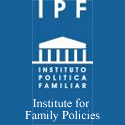
Institute for Family Policies International Federation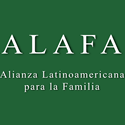
Alianza Latinoamericana para la Familia
American Family Association
Australian Marriage Forum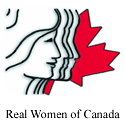
Real Women of Canada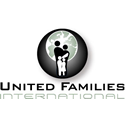
United Families International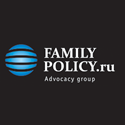
FamilyPolicy.ru
European Dignity Watch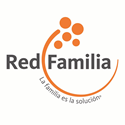
Red Familia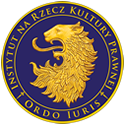
Ordo Iuris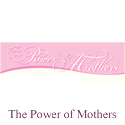
Power of Mothers
Family First Foundation
Reach the Children
Endeavour Forum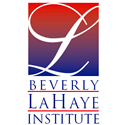
Beverly LaHaye Institute
Profesionales por la Ética
Novae Terrae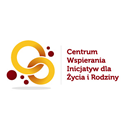
Centrum Wspierania Inicjatyw dla Życia I Rodziny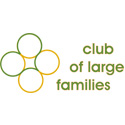
Club of Large Families
Family First New Zealand
HazteOir.org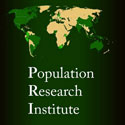
Population Research Institute
Dads4Kids
Movieguide.org
The Fellowship of St. James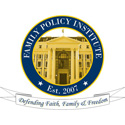
Family Policy Institue
GrasstopsUSA.com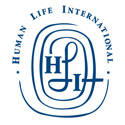
Human Life International
Notizie Provita
Contact the World Family Declaration Initiative: info@worldfamilydeclaration.org

